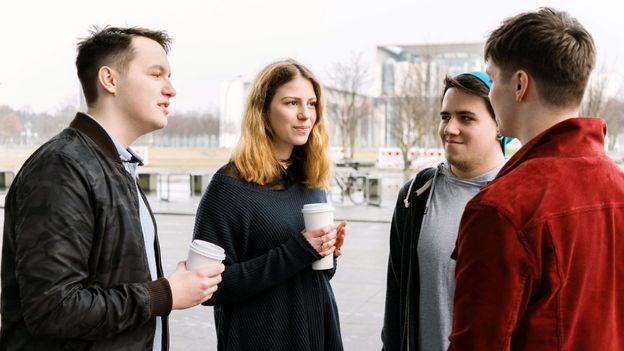As a disabled person, I face ableism and ableist language every day. Some people use ableist language without even knowing that it is ableist. I thought it would be good for folks to take a look at the attached BBC article and expand their perspectives a bit.



The premise here doesn’t apply. People I use these terms to refer to, I deny their freedom to be called as they wish. Instead I tend to call them nazis, pieces of shit, fascists, and the like.
However, if I accept your premise, I don’t see how “allowing others to be referred to as they wish” leads into a conclusion of “allowing others to dictate how I speak of others”. This is non-sequiteur.
I’m no stranger to listening to the marginalized, and, like most people, experience discrimination and have slurs I don’t want others to use, so I already do understand accepting that some terms are unacceptable, but it’s a matter of the barometer.
Most languages are like this. The reason L’Academie Française exists is merely to marginalize and suppress “improper French”, which before WWI was dozens of languages across the country. Paris French was standardized and languages were destroyed.
Agreed completely. Some good examples are the N word, the R word, the T word, the gay F word. These are all abject slurs that continue to be used to harm people today. Beyond that, I’m gonna use examples from my own communities for obvious reasons of comfort, and respect; terms like fairy, sissy, transsexual, gay, and homosexual all have various degrees of harm behind them. They often are used to capture caricatures of people like me and apply any negativity from those words unto me. Depending on the context, these words are undoubtedly offensive, but in other contexts, are inoffensive. Of course none of these hit the same notes as “dumb” does for the deaf community, as “dumb” is used colloquially as a term to insult, either seriously or jokingly, so I can’t directly relate in this regard. If I had experience of people referring to deaf people as “dumb” in my lifetime, my perspective would also be different, but that’s not my reality.^This may come down to privilege, but it is also the reality within which I live. I cannot deny my reality without getting actual context of it; beyond simple, theoretical whataboutisms.
It is on all of us to do this, yes. It’s not on us to accept anything any marginalized person says ever without question. That’s an improper ask.
Yes. A decent example for this, with a term that impacts me, is an abbreviation for a transmission.
No, I definitely agree that people are blind to problems that are surrounding by them. I disagree that this is a definition of privilege though, as I am no less privileged for believing it to be a problem. I don’t lose my linguistic privilege simply because I acknowledge, and to the best of my ability make efforts to see the problems that impact the people who don’t speak the common language of my region. If this is an accepted definition of privilege, it’s an entirely bad one.
It’s an unpopular opinion generally anywhere online, and people dislike being told what they should say or not; they often perceive it as radicalism and paint radicalism with a broad, negative brush. If OP posted this in a community that was specifically tailored to the deaf or the disabled, you’d definitely see a different reaction.
I hope that I come off as good faith to you. I’m trying to be thoughtful and reasonable in my responses. In other comments I have mentioned where I personally stand on these terms. I have no desire to “combat” people with bad faith arguments like many people in this thread seem to be, and legitimately just want to find some understanding. I’m sure I said some shit wrong in this post but I don’t really feel like revising the whole thing to make sure everything in it is perfect. Forgive me if I said something wrong, or even entirely out of my ass.